On Friday, April 12, Cause of Action Institute (CoA Institute) Counsel Ryan Mulvey joined a panel at the National Freedom of Information Coalition’s (NFOIC) 2019 Annual Freedom of Information (FOI) Summit in Dallas, Texas to present a winning research paper co-authored by Mulvey and CoA Counsel and Senior Policy Advisor James Valvo. The paper presents a comprehensive survey of open records laws and identifies useful trends in how public access to legislative records is regulated at the state and federal levels. Ryan and James’ paper was one of three to be presented on a panel from 18 total submissions for the contest. Their underlying research evolved out of work originally undertaken for an amicus brief filed in the Georgia Court of Appeals.
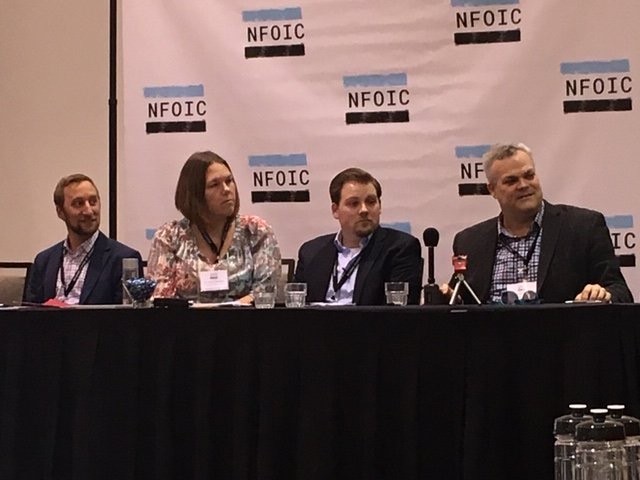
The paper, “‘Opening the State House Doors’: Examining Trends in Public Access to Legislative Records” examines how all 50 states’ FOI laws address the question of access to legislative records. That survey reveals that 38 states provide some form of access to various legislative materials. Only 11 exclude the legislative branch from their public-disclosure laws, whether expressly, by implication, or according to judicial interpretation. The clear trend, in any case, is to construe state FOI laws in favor of public access.

Of the 38 states that provide requesters with at least some basic level of access to legislative records, 14 do so implicitly while the other 24 explicitly allow access to legislative records.
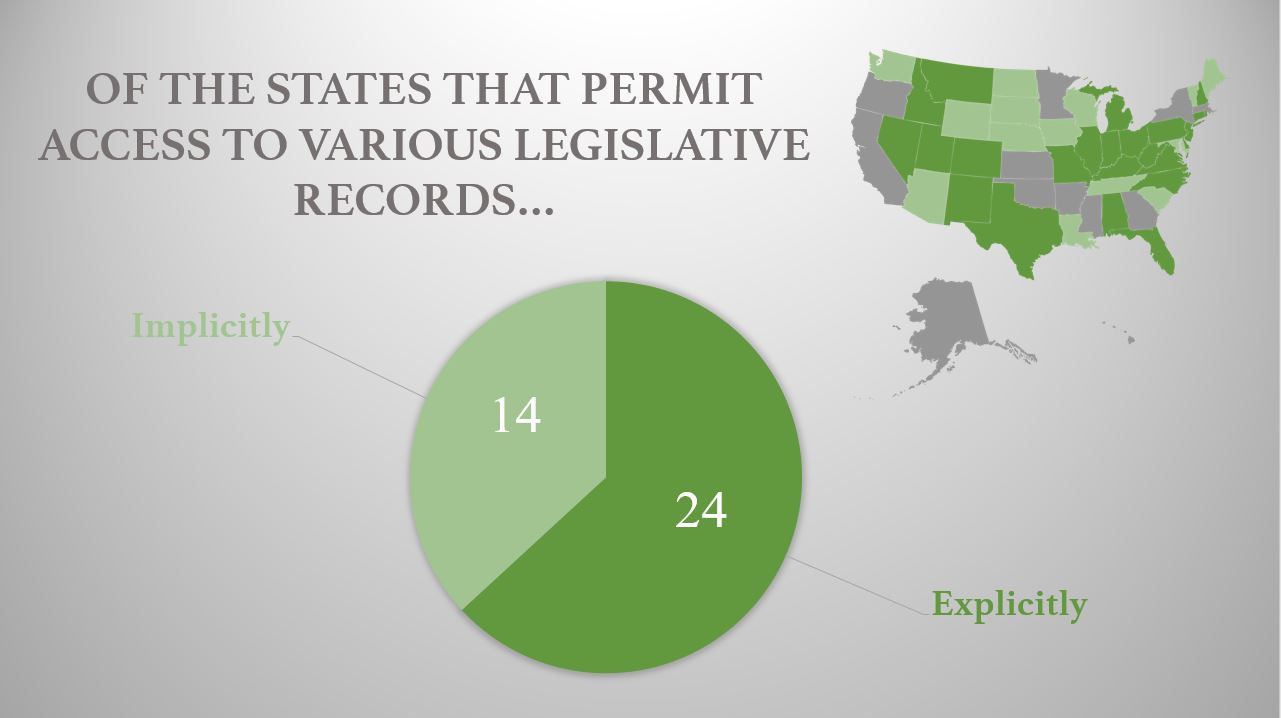
Of the states that explicitly cover the legislature in their FOI laws, there is some diversity in how the branch is included. For example, in two states the law focuses on the nature of the record subject to disclosure. North Carolina defines a “public record” to include materials “made or received” by a “public office,” including that of an elected official. Another 20 states focus on the kinds of government entities that must disclose their records upon request, including nine states that define an “agency” to include the legislature or legislative offices. Finally, in Missouri and Florida, access to legislative records is guaranteed by the state constitution.
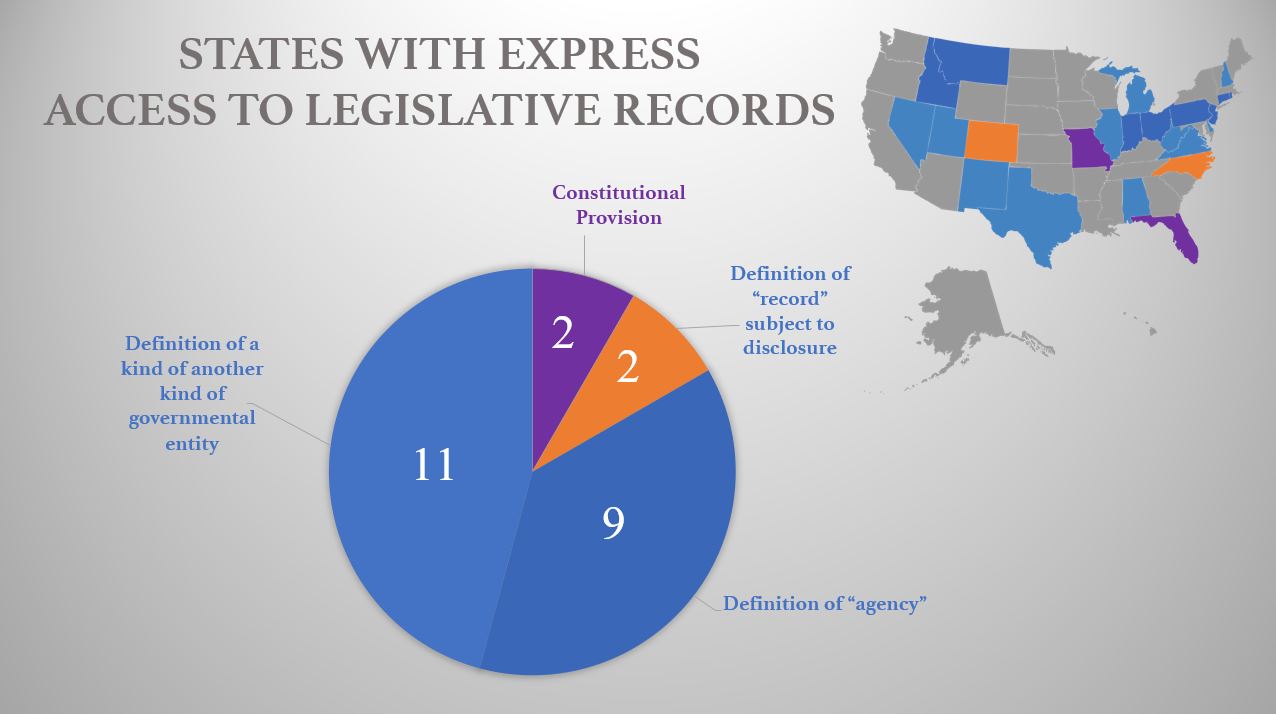
Ryan and James identified 14 states that impliedly grant access to legislative records. Ten states do so based on the interpretation of terms defining the governmental entities subject to disclosure. For example, six states use the term “branch,” which is understood to include the legislature. Four states define the sort of record subject to disclosure in such a way to include legislative materials. And in six states, the presence of statutory exemptions—or protections that allow a record custodian to withhold information—only applicable to certain legislative records suggest that the legislature, as a whole, is subject to the FOI statute.
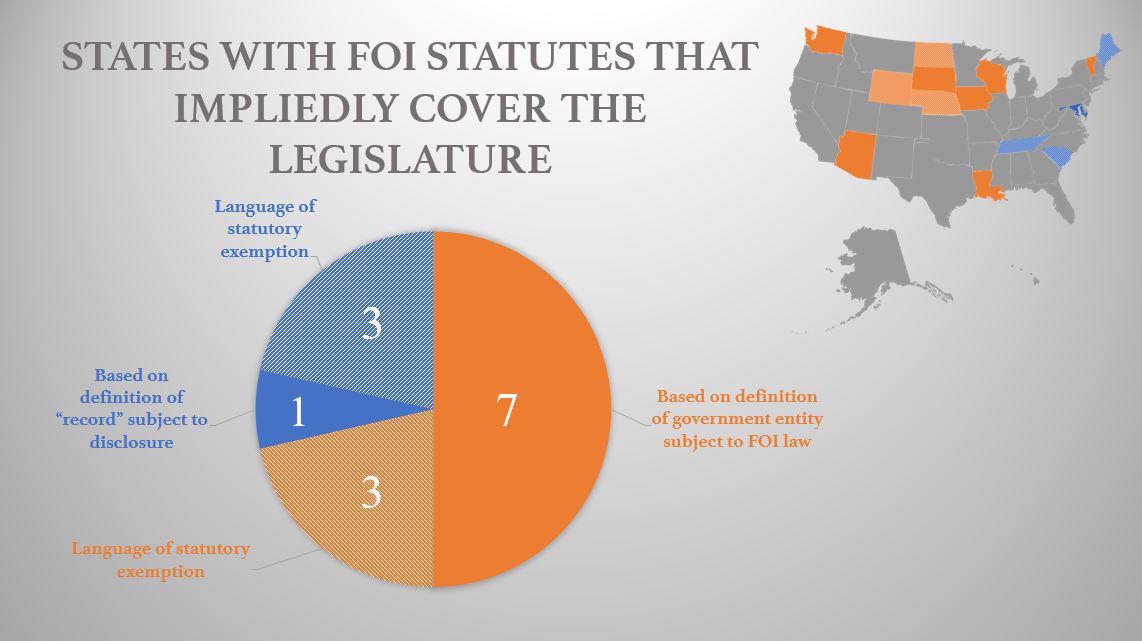
Finally, the survey found that of the 12 states that completely exclude the legislature from their FOI statutes, eight do so explicitly, two implicitly, and two based on judicial interpretation.
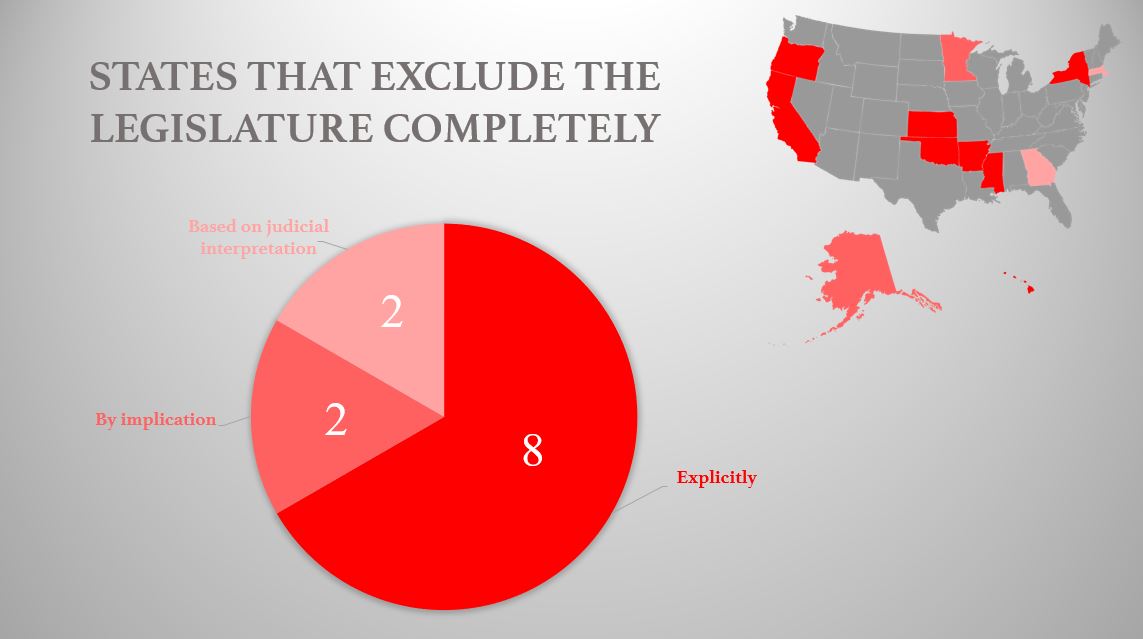
In addition to surveying state law, Ryan and James examined the treatment of legislative records under the federal FOIA. Specifically, they discussed the possibility that courts could look more seriously at the availability of records under the control of legislative branch agencies, and they pointed to the positive development in the case law governing the extension of congressional control over records that reflect the interaction of the federal legislature and the Executive Branch.
The full paper can be viewed here. The findings discussed above, and the graphics excerpted from the panel presentation, reflect developments in three states (Missouri, South Carolina, and Michigan) that are not discussed in the paper.
–
Ryan Mulvey is counsel at Cause of Action Institute. Mallory Koch is a communications associate at Cause of Action Institute.
